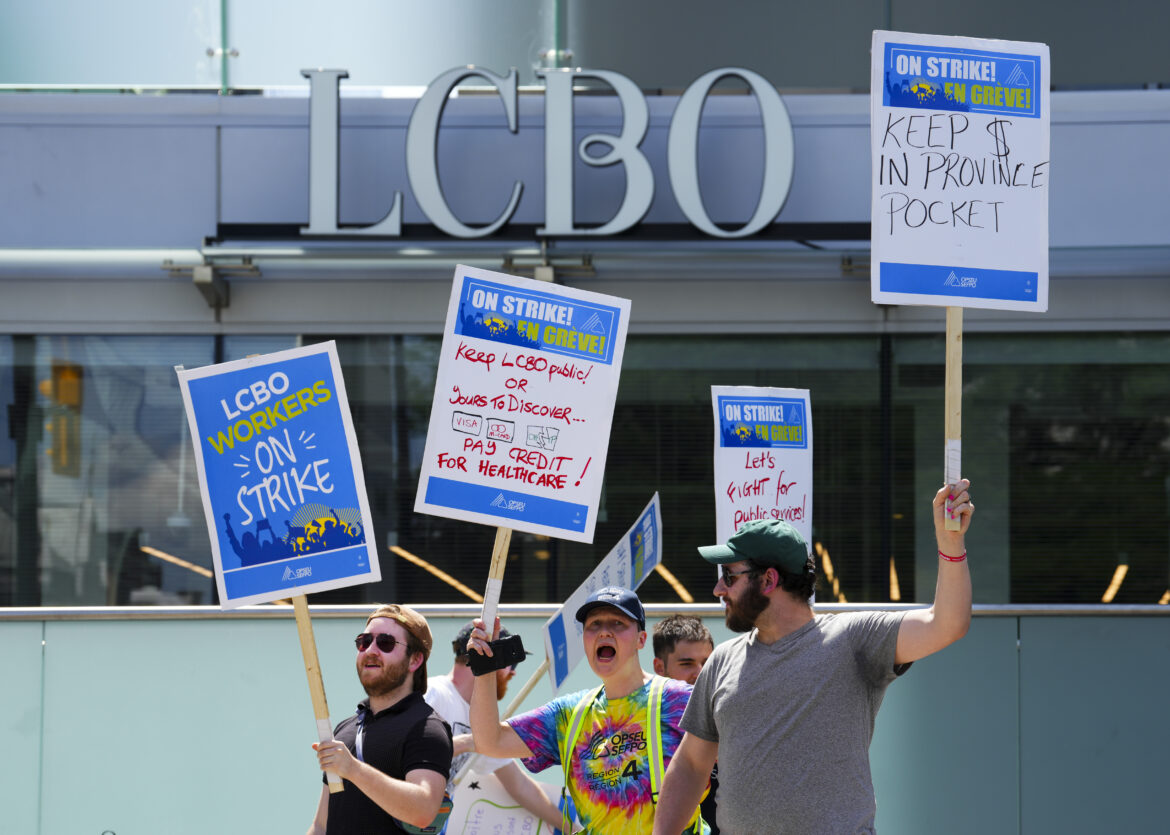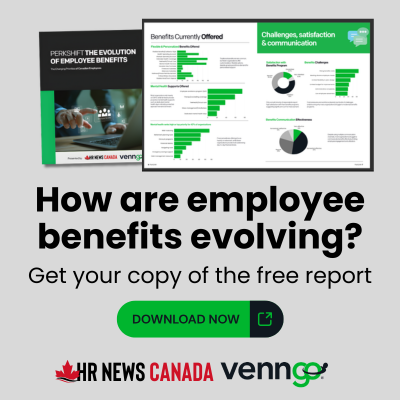A deal reached Friday to end a two-week-long strike at the Liquor Control Board of Ontario may not be final, as just hours later both sides were accusing each other of acting in bad faith.
Despite trumpeting a tentative agreement in the morning to end the strike, the union representing 10,000 workers at the LCBO announced Friday afternoon that the strike would continue because the employer refused to sign a return-to-work protocol.
“We were prepared to announce this deal,” Ontario Public Service Employees Union spokesperson Katie Arnup said at the start of what was supposed to be a press conference about the agreement.
“The premier said there was a deal. But the employer is now refusing to sign that protocol. Our return-to-work protocol is necessary for workers to go back to work in the event of a strike. Without that document signed we do not have a deal. The strike continues.”
The LCBO fired back, saying in a statement that it would file an unfair labour practice complaint against OPSEU.
“Earlier today, OPSEU agreed to the deal by entering into a minutes of settlement that requires a recommendation of ratification to their members,” the LCBO wrote.
“They have since introduced significant new monetary demands that should have been dealt with at the bargaining table. To introduce a new set of demands after reaching a tentative agreement amounts to bad faith bargaining.”
The LCBO has said in a statement earlier Friday that a tentative agreement was reached and if ratified, the strike would end at 12:01 a.m. Monday and stores would reopen on Tuesday.
Workers represented by OPSEU walked off the job July 5 and negotiations had resumed on Wednesday this week.
OPSEU had said the dispute was largely about Premier Doug Ford’s plan to allow convenience and grocery stores to sell ready-to-drink cocktails, saying expanded sales of the beverages will threaten their jobs.
The LCBO had said that wasn’t a matter for the bargaining table.
The last offer that it made public included wage increases of seven per cent over three years, a special adjustment for certain warehouse positions, improving access to benefits for casual part-timers, converting about 400 casual workers to permanent full time, and improving severance provisions.
During the strike, the Ford government forged ahead with its alcohol expansion plans. Ford sped up the date when grocery stores already licensed to sell beer and wine could add the pre-mixed cocktails and coolers to their offerings.
Those grocers could place orders for the beverages starting Thursday and by Friday some were already appearing on store shelves.
Pushing that step two weeks earlier than planned was part of an already fast-tracked timeline to expand alcohol sales in the province.
Ford’s previous plan was to get beer, wine and ready-to-drink cocktails in convenience stores and all grocery stores by 2026, but in May he announced that would instead happen this year.
An “early implementation agreement” with The Beer Store involves the province paying the company up to $225 million to help it keep stores open and workers employed. The province is also giving brewers a rebate on an LCBO fee that normally brings in $45 million a year, and it is giving retailers a 10 per cent wholesale discount.
Convenience stores will be allowed to sell beer, wine and coolers starting Sept. 5 while newly licensed grocery stores can do so starting Oct. 31.
During the strike the LCBO had been fulfilling orders online and for licensees such as bars and restaurants, but those venues had said their supplies were becoming strained as the strike neared the two-week mark.






